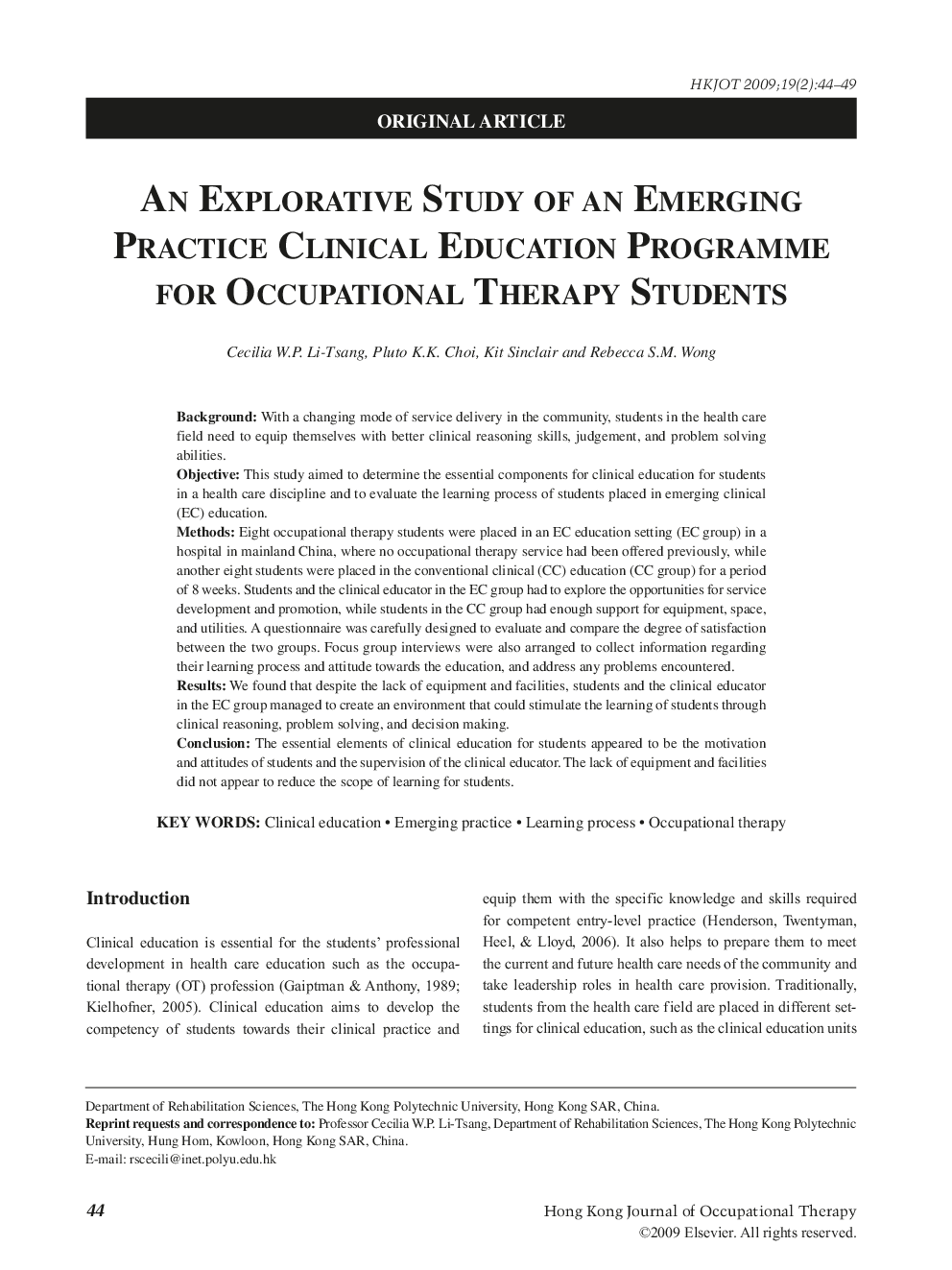| Article ID | Journal | Published Year | Pages | File Type |
|---|---|---|---|---|
| 2697802 | Hong Kong Journal of Occupational Therapy | 2009 | 6 Pages |
BackgroundWith a changing mode of service delivery in the community, students in the health care field need to equip themselves with better clinical reasoning skills, judgement, and problem solving abilities.ObjectiveThis study aimed to determine the essential components for clinical education for students in a health care discipline and to evaluate the learning process of students placed in emerging clinical (EC) education.MethodsEight occupational therapy students were placed in an EC education setting (EC group) in a hospital in mainland China, where no occupational therapy service had been offered previously, while another eight students were placed in the conventional clinical (CC) education (CC group) for a period of 8 weeks. Students and the clinical educator in the EC group had to explore the opportunities for service development and promotion, while students in the CC group had enough support for equipment, space, and utilities. A questionnaire was carefully designed to evaluate and compare the degree of satisfaction between the two groups. Focus group interviews were also arranged to collect information regarding their learning process and attitude towards the education, and address any problems encountered.ResultsWe found that despite the lack of equipment and facilities, students and the clinical educator in the EC group managed to create an environment that could stimulate the learning of students through clinical reasoning, problem solving, and decision making.ConclusionThe essential elements of clinical education for students appeared to be the motivation and attitudes of students and the supervision of the clinical educator. The lack of equipment and facilities did not appear to reduce the scope of learning for students.
